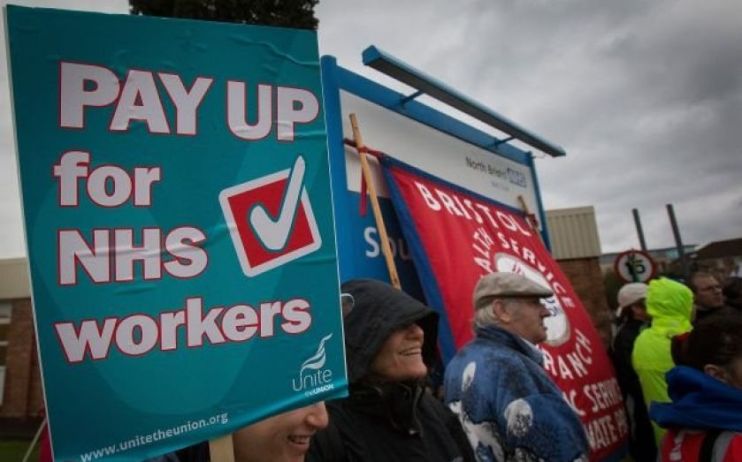Fears raised over low NHS staff morale, health leader says

A health boss has said NHS leaders have never been so worried over staff morale as nurses are set to go on strike again.
Matthew Taylor, chief executive of the NHS Confederation, a membership body for organisations that commission and provide services across the NHS, added that workforce concerns go beyond industrial action with “serious issues” around recruitment.
It comes as the Royal College of Nursing (RCN) is to hold a strike from 8pm on Sunday until 11.59pm on Monday evening.
The RCN previously said it will not agree to derogations, broad areas of care where unions agree to provide staffing during industrial action, meaning nurses in intensive care, A&E and cancer care will be on strike.
Mr Taylor told BBC Breakfast: “I talk to NHS leaders all the time and I have never known a period when leaders are so worried about staff morale and there is a sense of a loss of hope.
“We have 120,000-plus of vacancies in the health service. We have been waiting for years for a proper funded workforce plan, so even when these strikes are over, we still have very serious issues of recruitment, retention and of motivation in our health and care system.”
Health workers across the NHS have gone on strike several times in past months in disputes over pay and conditions.
Unions including Unison and the GMB have voted in favour of a Government pay offer to end the strikes, while Unite and the RCN have voted against.
Mr Taylor, who said the strike will leave parts of the NHS “under immense strain”, added: “We are a health service that is always running on hot. If you take capacity out even for a day then it has knock-on effects, but this has been going on six months so those affects have piled up.
“There are hundreds of thousands of cancelled operations and procedures and that is why it is so vital to have a resolution to this dispute.
“If this industrial action were to roll on into the summer then it would make it almost impossible for us to meet the targets that we have, in backlog and other areas of patient care.”
RCN general secretary Pat Cullen defended the strike and said cancelled medical appointments were not just the result of industrial action.
She told BBC Breakfast: “I hear and listen on a daily basis from our nursing staff that work within Great Ormond Street and many other hospitals, of how they have to deal and manage with those cancellations on a daily basis. They are left to actually have to break that news to patients.
“I think it is a bit disingenuous to say that those cancellations happen only on a day of strike because actually that is not true.
“Haven’t we now seen very clearly what happens in the NHS when you don’t have nurses. The NHS can’t cope without nurses.”
She said she hopes healthcare leaders are “now signalling to this Government that we need to sort nursing out otherwise patients in this country will not get a better service”.
NHS England is urging the public to use the health service wisely.
It said emergency and urgent care would remain the priority, with people asked to use other services such as pharmacies and 111 where possible.
Nurses make up a quarter of NHS staff and are the biggest proportion of the health service workforce.
NHS England warned that staffing levels for some areas of the country will be “exceptionally low, lower than on previous strike days”.
It added the number of rescheduled appointments due to strike action is set to hit half a million next week.
A High Court judge ruled on Thursday it would be unlawful for the RCN strike to continue into Tuesday as originally planned, meaning it will now end just before midnight on Monday.
Press Association – Jane Kirby
